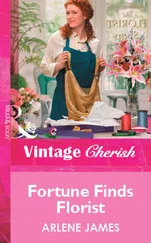“You have an important visitor,” he announced with a flourish, “and I took the liberty of bringing her back.”
Chey looked up with a practiced smile in place. Her mother moved gingerly through the doorway, the strap of her scuffed patent-leather purse clutched tightly in one gloved hand. Sighing inwardly at the sight of the small, warped, straw hat perched atop her mother’s usual coil of smoke-gray hair, Chey pushed back from the desk and got up to kiss the other woman’s cheek. It wasn’t the fact that her mother’s hat was decades out of fashion and that the sprig of honeysuckle which had been pinned to it was wilted and browning that pained Chey, but that she had purchased for the woman any number of stylish new hats which were never worn. As far as Louise Simmons was concerned, nice things were an unconscionable waste. It was as if she simply could not stop being the selfless mother who dared not dream of anything beyond the basics for her children and never of anything for herself. Chey wondered if her mother ever even thought of herself as anything other than just that, a mother. And while Chey was deeply grateful for, even in awe of, that kind of dedication, she had never wanted it for herself, precisely because it seemed so very limiting.
Louise allowed Chey to steer her to the lyre-backed chair in front of the French Provincial desk and sat down, drawing off her gloves. She laid them atop the little pie-crust table at her elbow and said chattily, “I once gave five dollars for a table just like that at a second-hand store. Do you remember that table, Mary?”
Chey pressed her pink, professionally manicured nails to one smooth, golden-blond temple and tamped down her impatience. “I do, but that old pie-crust table is not why you’re here, Mama. What’s going on?”
Louise went straight to the point. “Kay and Sylvester are wondering if you’re going to attend their little fais-dodo for Melanie’s graduation. I told her of course you would, but she said you said something about not being sure of your plans, but it’s only April, and that’s plenty of time to arrange your calendar, so I was sure it wouldn’t be a problem. Still, I thought I’d ask and have a little visit with you at the same time. We don’t see you often enough, you know.”
Chey sat down during this cheery speech and busied herself straightening the already neat desktop as a familiar sense of guilt stole over her. She would, of course, attend the graduation party. She wanted to. And yet, these family celebrations often left her unhappy and resentful.
“The term little fais-do-do is a contradiction in terms, Mama,” she said smoothly, “especially in this family.”
With nine siblings, all married and all with families of their own, Chey sometimes felt like the lone member of a large tribe who just didn’t get it. They were all content to carry on in the time-honored traditions of their clan, marrying young and birthing babies with the same casual joy with which they might play the accordion or fiddle for an impromptu dance in the backyard. Only Chey had resisted the mold. Only Chey had other plans, dreams. Only Chey had remained determinedly single and childless, reserving her dedication for her career. Only Chey did not fit in.
“Kay says that the kids stay out all night long and get into trouble when left to themselves,” Louise went on, ignoring Chey’s comment. “She wants to keep Melanie well occupied with family that night. I thought she was over-doing it a bit, but Frank says she has the right of it, and—”
“Frank would know,” Chey said for her.
“Since his five have turned out so well,” Louise finished with satisfaction.
If by “well” one meant that they’d all gotten through high school before they’d started having babies, Chey mused silently. Only she and a few of her nieces and nephews had gone on to college.
“By the way,” Louise said, changing the subject. “Fay went for her ultrasound yesterday, and the doctor says it’s almost surely a girl. Isn’t that perfect? Now they’ll have one of each.”
“Any hope they’ll stop at one of each?” Chey asked acerbically.
Louise rolled her eyes in apparent exasperation. “For heaven’s sake, Mary Chey, most people like babies!”
“I like babies,” Chey said. “I just think the Simmons clan has enough. I mean, am I the only one who thinks that life is about more than making babies?”
Louise answered that with a deep sigh. “It’s about more than making money, too, you know.”
Chey rolled her eyes and spread her arms. “This isn’t about money, Mother. It’s about accomplishment and quality of life. It’s about doing something meaningful and being someone admirable.”
“It’s about you, dear,” Louise Simmons said softly. “You’ve accomplished a great deal professionally, and I’m very proud of you. But don’t you see that not everyone is fixated on their profession?”
“I’m not fixated, Mother,” Chey retorted defensively.
“You have no life apart from this business. You don’t even date,” Louise pointed out. “How will you ever meet a man if you don’t even date?”
An image of Brodie Todd flashed across her mind’s eye. She banished it immediately, snapping, “I don’t care about meeting men.”
“But don’t you grow tired of being alone, dear?” her mother asked, going on when Chey merely shrugged. “I know you don’t want children, and that’s fine. Parenthood isn’t for everyone, and goodness knows I’ve no reason to complain with thirty-one, almost thirty-two, grandchildren and eleven great-grandchildren, but I do worry about you being alone.”
“Mom, I have just as much family as you do,” Chey pointed out.
“But you don’t have anyone of your own,” Louise said gently.
“You should talk. Daddy’s been gone for twenty years, and in all that time, you’ve never even looked at another man.”
“When you’ve had the best—” Louise began a familiar litany.
“I know that you loved him,” Chey interrupted, “and it just proves my point. That kind of love is very rare.”
“All your brothers and sisters are happily married,” Louise pointed out, “and here you are, thirty years old without even a steady boyfriend. A woman as pretty and bright as you ought to have a husband.”
“Mother, please, not now,” Chey pleaded impatiently.
Georges appeared just then, a sheet of paper in his hand. “Sugar, would you look at this invoice? I can’t make heads or tails of it, I swear.”
Louise subsided immediately, grasped the handle of her purse with both hands and looked down. “You have work to do,” she said softly, rising to her feet. “What shall I tell Kay and Sylvester, dear?”
Chey managed a smile. “Tell them I’ll be there, of course.”
Louise beamed. “Of course you will.” She reached across the desk and cupped Chey’s cheek in one worn hand. “Come for dinner soon, will you?”
Chey nodded, warmed despite her irritation. “Soon, Mama.” She placed her hand over her mother’s and hugged it briefly between her own palm and her cheek. She stood and smiled her mother through the door, then braced her hands flat against the desktop and bowed her head. “Thank you, Georges.”
He wadded the piece of paper in his beefy fist, not at all to her surprise. The invoice had never been written that Georges Phillips could not decipher. It was part of what made him so valuable to her.
Solidly middle-aged and decidedly rotund, he was an odd combination of flamboyance and distinguished style. At the moment he wore a vanilla white suit and matching silk ascot with a flame-red shirt on his stocky, yet graceful body. His thinning, dark blond hair was combed back ruthlessly, allowing the silver of his temples and winged brows to challenge his blunt nose and plump mouth for dominance of his round face. His physical appearance and droll manner of speaking always put Chey in mind of a slightly slimmer, fitter Alfred Hitchcock, albeit one given to sometimes absurd sartorial splendors. Unfortunately, he was as astute with people as with billing invoices.
Читать дальше












